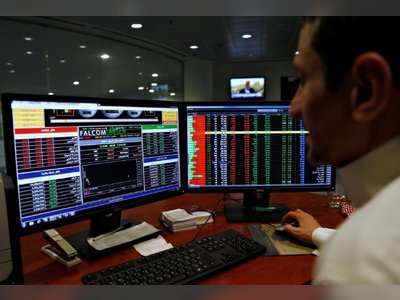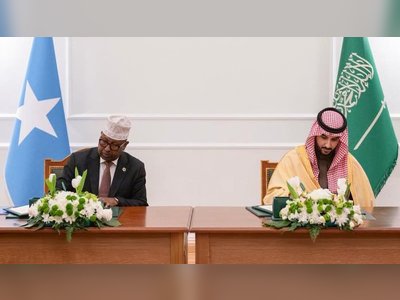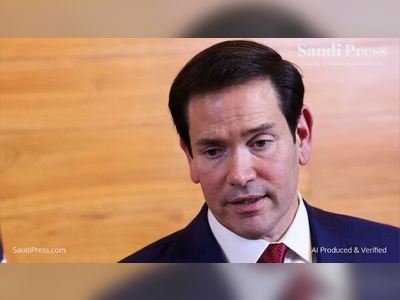
‘Woman who can smell Parkinson’s’ helps scientists develop test
Scientists drew on 72-year-old Scot’s rare condition to help identify people with neurological condition
Scientists have harnessed the power of a woman’s hyper-sensitive sense of smell to develop a test to determine whether people have Parkinson’s disease.
The test has been years in the making after academics realised that Joy Milne could smell the condition. The 72-year-old from Perth, Scotland, has a rare condition that gives her a heightened sense of smell.
She noticed that her late husband, Les, developed a different odour when he was 33 – 12 years before he was diagnosed with the disease, which leads to parts of the brain become progressively damaged over many years.
Milne, nicknamed “the woman who can smell Parkinson’s”, described a musky aroma, different from his normal scent.
Her observation piqued the interest of scientists who decided to research what she could smell, and whether this could be harnessed to help identify people with the neurological condition.
Years later, academics at the University of Manchester have made a breakthrough by developing a test that can identify people with Parkinson’s disease using a simple cotton bud run along the back of the neck.
Researchers can examine the sample to identify molecules linked to the disease to help diagnose if someone has it.
Though still in the early phases of research, scientists are excited about the prospect of the NHS being able to deploy a simple test for the disease.
There is no definitive test for Parkinson’s and diagnosis is based on a patient’s symptoms and medical history.
If the skin swab is successful outside laboratory conditions it could be rolled out to achieve faster diagnosis.
Milne said it was not acceptable that people with Parkinson’s had such high degrees of neurological damage at the time of diagnosis, adding: “I think it has to be detected far earlier – the same as cancer and diabetes, earlier diagnosis means far more efficient treatment and a better lifestyle for people.
“It has been found that exercise and change of diet can make a phenomenal difference.”
She said her husband, a former doctor, was determined to find the right researcher to examine the link between odour and Parkinson’s and they sought out Dr Tilo Kunath at the University of Edinburgh in 2012.
Kunath paired up with Prof Perdita Barran to examine Milne’s sense of smell.
The scientists believed that the scent may be caused by a chemical change in skin oil, known as sebum, that is triggered by the disease.
In their preliminary work they asked Milne to smell T-shirts worn by people who had Parkinson’s and those who did not. She correctly identified the T-shirts worn by Parkinson’s patients but also said that one from the group of people without Parkinson’s smelled like the disease – eight months later that individual was diagnosed with the disease.
Researchers hoped the finding could lead to a test being developed to detect Parkinson’s, working under the assumption that if they were able to identify a unique chemical signature in the skin linked to the disease, they may eventually be able to diagnose it from simple skin swabs.
In 2019, researchers at the University of Manchester, led by Barran, announced they had identified molecules linked to the disease found in skin swabs. The scientists have now developed a test using this information.
The tests have been successfully conducted in research labs and scientists are assessing whether they can be used in hospital settings. If successful, the test could potentially be used in the NHS so GPs can refer patients for Parkinson’s tests.
The findings, which have been published in the Journal of the American Chemical Society, detail how sebum can be analysed with mass spectrometry – a method that weighs molecules – to identify the disease. Some molecules are present only in people who have Parkinson’s.
Researchers compared swabs from 79 people with Parkinson’s with a healthy control group of 71 people.
Barran said: “At the moment, there are no cures for Parkinson’s but a confirmatory diagnostic would allow them to get the right treatment and get the drugs that will help to alleviate their symptoms.
“There would also be non-pharmaceutical interventions, including movement and also nutritional classes, which can really help. And I think most critically, it will allow them to have a confirmed diagnosis to actually know what’s wrong with them.”
She added: “What we are now doing is seeing if (hospital laboratories) can do what we’ve done in a research lab in a hospital lab. Once that’s happened then we want to see if we can make this a confirmatory diagnostic that could be used along with the referral process from a GP to a consultant.
“At the moment in Greater Manchester there are about 18,000 people waiting for a neurological consult and just to clear that list, without any new people joining it, will take up to two years. Of those 10-15% are suspect Parkinson’s.
“Our test would be able to tell them whether they did or whether they didn’t (have Parkinson’s) and allow them to be referred to the right specialist. So at the moment, we’re talking about being able to refer people in a timely manner to the right specialism and that will be transformative.”
Milne is working with scientists around the world to see if she can smell other diseases such as cancer and tuberculosis (TB).
“I have to go shopping very early or very late because of people’s perfumes, I can’t go into the chemical aisle in the supermarket,” she said.
“So yes, a curse sometimes but I have also been out to Tanzania and have done research on TB and research on cancer in the US – just preliminary work. So it is a curse and a benefit.”
She said she can sometimes smell people who have Parkinson’s while in the supermarket or walking down the street but has been told by medical ethicists she cannot tell them.
“Which GP would accept a man or a woman walking in saying ‘the woman who smells Parkinson’s has told me I have it’? Maybe in the future but not now.”
The test has been years in the making after academics realised that Joy Milne could smell the condition. The 72-year-old from Perth, Scotland, has a rare condition that gives her a heightened sense of smell.
She noticed that her late husband, Les, developed a different odour when he was 33 – 12 years before he was diagnosed with the disease, which leads to parts of the brain become progressively damaged over many years.
Milne, nicknamed “the woman who can smell Parkinson’s”, described a musky aroma, different from his normal scent.
Her observation piqued the interest of scientists who decided to research what she could smell, and whether this could be harnessed to help identify people with the neurological condition.
Years later, academics at the University of Manchester have made a breakthrough by developing a test that can identify people with Parkinson’s disease using a simple cotton bud run along the back of the neck.
Researchers can examine the sample to identify molecules linked to the disease to help diagnose if someone has it.
Though still in the early phases of research, scientists are excited about the prospect of the NHS being able to deploy a simple test for the disease.
There is no definitive test for Parkinson’s and diagnosis is based on a patient’s symptoms and medical history.
If the skin swab is successful outside laboratory conditions it could be rolled out to achieve faster diagnosis.
Milne said it was not acceptable that people with Parkinson’s had such high degrees of neurological damage at the time of diagnosis, adding: “I think it has to be detected far earlier – the same as cancer and diabetes, earlier diagnosis means far more efficient treatment and a better lifestyle for people.
“It has been found that exercise and change of diet can make a phenomenal difference.”
She said her husband, a former doctor, was determined to find the right researcher to examine the link between odour and Parkinson’s and they sought out Dr Tilo Kunath at the University of Edinburgh in 2012.
Kunath paired up with Prof Perdita Barran to examine Milne’s sense of smell.
The scientists believed that the scent may be caused by a chemical change in skin oil, known as sebum, that is triggered by the disease.
In their preliminary work they asked Milne to smell T-shirts worn by people who had Parkinson’s and those who did not. She correctly identified the T-shirts worn by Parkinson’s patients but also said that one from the group of people without Parkinson’s smelled like the disease – eight months later that individual was diagnosed with the disease.
Researchers hoped the finding could lead to a test being developed to detect Parkinson’s, working under the assumption that if they were able to identify a unique chemical signature in the skin linked to the disease, they may eventually be able to diagnose it from simple skin swabs.
In 2019, researchers at the University of Manchester, led by Barran, announced they had identified molecules linked to the disease found in skin swabs. The scientists have now developed a test using this information.
The tests have been successfully conducted in research labs and scientists are assessing whether they can be used in hospital settings. If successful, the test could potentially be used in the NHS so GPs can refer patients for Parkinson’s tests.
The findings, which have been published in the Journal of the American Chemical Society, detail how sebum can be analysed with mass spectrometry – a method that weighs molecules – to identify the disease. Some molecules are present only in people who have Parkinson’s.
Researchers compared swabs from 79 people with Parkinson’s with a healthy control group of 71 people.
Barran said: “At the moment, there are no cures for Parkinson’s but a confirmatory diagnostic would allow them to get the right treatment and get the drugs that will help to alleviate their symptoms.
“There would also be non-pharmaceutical interventions, including movement and also nutritional classes, which can really help. And I think most critically, it will allow them to have a confirmed diagnosis to actually know what’s wrong with them.”
She added: “What we are now doing is seeing if (hospital laboratories) can do what we’ve done in a research lab in a hospital lab. Once that’s happened then we want to see if we can make this a confirmatory diagnostic that could be used along with the referral process from a GP to a consultant.
“At the moment in Greater Manchester there are about 18,000 people waiting for a neurological consult and just to clear that list, without any new people joining it, will take up to two years. Of those 10-15% are suspect Parkinson’s.
“Our test would be able to tell them whether they did or whether they didn’t (have Parkinson’s) and allow them to be referred to the right specialist. So at the moment, we’re talking about being able to refer people in a timely manner to the right specialism and that will be transformative.”
Milne is working with scientists around the world to see if she can smell other diseases such as cancer and tuberculosis (TB).
“I have to go shopping very early or very late because of people’s perfumes, I can’t go into the chemical aisle in the supermarket,” she said.
“So yes, a curse sometimes but I have also been out to Tanzania and have done research on TB and research on cancer in the US – just preliminary work. So it is a curse and a benefit.”
She said she can sometimes smell people who have Parkinson’s while in the supermarket or walking down the street but has been told by medical ethicists she cannot tell them.
“Which GP would accept a man or a woman walking in saying ‘the woman who smells Parkinson’s has told me I have it’? Maybe in the future but not now.”











